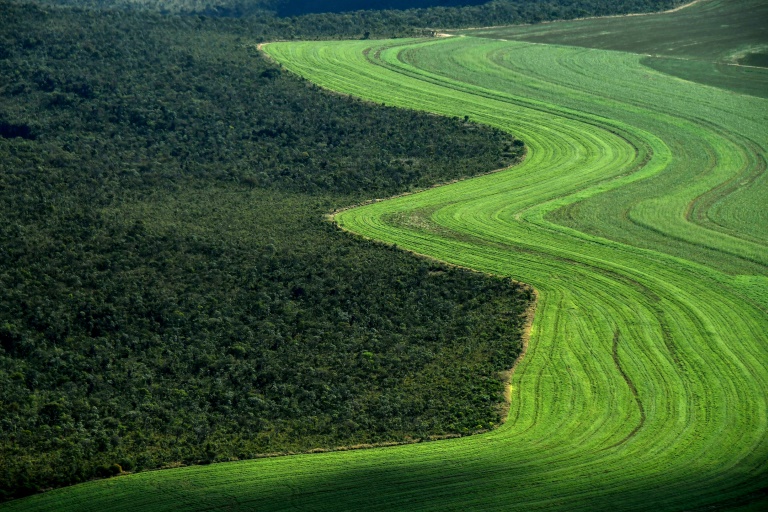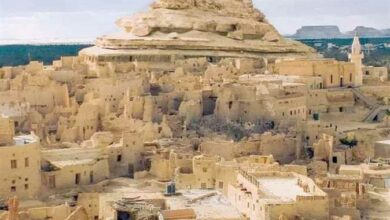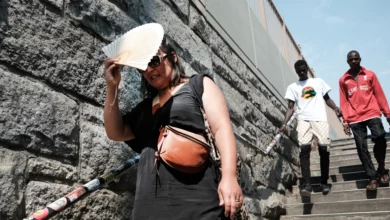Late last month, American University in Cairo (AUC) physics Professor Salah Arafa was chosen "Man of the Year" by Egypt’s Society of Writers on Environment and Development. Established in 1996, the society honors experts that have contributed positively to the field of environmental development.
This year’s choice of Arafa for the distinction was based on his innovative desert reclamation projects — Old and New Basaisa — which have become recognized internationally as models for sustainable development. Arafa sat down with Al-Masry Al-Youm to discuss the recent honor, the current state of the environment and the success of his development projects.
Al-Masry Al-Youm: What does the "Man of the Year" distinction mean to you?
Salah Arafa: The real award is when I meet someone that I’ve had an impact on. I had a feeling from the beginning that this country, and all other countries in the developing world, really need help from those who know.
My work in the field started in a strange way. I realized that, with all the knowledge I had, how ignorant I was of my own country. It pushed me to read a little bit more and think critically. I realized that development in general is change — a change of mentality and a change of behavior — and I asked myself, "Who’s responsible?" And I arrived at a scientific answer: those who know. And those who know are the literate people; those who have traveled abroad and know what a clean environment is.
Al Masry: Does this mean that it is the responsibility of those who have this knowledge?
Arafa: It means that since I’m a well-established PhD in physics, I know where to go more than anyone else. I know where to go to find a solution to a problem more than anyone else. That pushed me, because, since I can claim some knowledge, I have a responsibility.
From Old Basaisa to New Basaisa to what I’m doing on the non-governmental level, I’ve found that there are many problems — but there also many solutions. And those who have the knowledge of the solutions are separate from those that need the solutions. The knowledge is there in universities and needed in rural areas, but there is no connection. That connection could be made by students, clubs and NGOs.
Al-Masry: To what do you attribute the success of the first Basaisa project?
Arafa: I followed the correct recipe, which comes from the United Nations: namely, reach them, mobilize them, organize them and empower them. It was successful because we searched for a project that was practical, affordable and could be done by the people themselves. When we did that, it gave them confidence. It wasn’t something I was doing for them, but something I was helping them do.
The success of any development project requires participation from everyone concerned, and participation isn’t possible without free and open dialogue.
Al-Masry: One of the criticisms I’ve heard of the subsequent projects, especially those in Abu Minqar and Sinai, was that these projects lack the "open dialogue" you just mentioned.
Arafa: First of all, you can’t have a part of the land in Sinai or Abu Minqar without being part of a dialogue. This criticism is imaginary. You have to at least attend meetings and so on. The people who are there are either there because they are residents or because they are investors. It is the residents, not the investors, that are the participants.
We don’t take any decisions except at meetings. But if someone isn’t in attendance, he is not a good participant — that’s normal in any system. But if you go to Basaisa — old or new — on any given Friday, you’ll find that all the people are able to discuss all the problems.
Al-Masry: So you have investors coming in that aren’t interested in dialogue?
Arafa: They don’t really have the time. We’re concentrating on the people that are living there. As for the people who aren’t living there, well, I don’t really care. But they are so supportive because they’re at least providing the money. The investor for me is like the foreign funding agency.
They are not living there, so they’re not interested in the machinery or sustainability. They’re interested in the success of their own project. But they support other people living there by providing the money to set up a plantation or help other investors’ plantations.
Al-Masry: Land is a political issue, particularly in Egypt. Are the locals afraid that the military or police might show up?
Arafa: It’s good training for them. We have all sorts of interventions and dialogue with the police and security at the highest level. If you say, "You have taken this piece of land, redistribute it, fine" — but if you’re not doing what is required to make sure that you’re interested in continuous, sustainable cultivation, we give the government the authority to say "Get rid of them."
We’ve made it clear that we will irrigate all of the land via drip irrigation because we’re conserving water. No one can say what we’re doing is wrong. And building-wise, the cultivation, we’re not making alfalfa, we’re making continuous crops that will last 150 years, such as olive trees, jojoba and palm trees, all of which produce oil.
When we went to Sinai, we applied the very same methods that we did in Old Basaisa. If you start an NGO, you’re asking someone to sit there and wait for money. Rather, we launched two NGOs at the same time, in the same place and with the same people. One is a CDA, or community development association, based on projects with outside funding, or funding on the government and small fees collected. The other is a productive NGO in which there are shares, projects, production and profits that go back to support the CDA. That was the key.
For drip irrigation, what do I need? Pumps and pipes. This is money. And if I have the money, I’ll buy two or three sheep. You need to have a mechanism whereby you can really diffuse this new technology, make the people aware of what’s going on and help them.
Al-Masry: Water is becoming increasingly scarce. If we wait another 30 years to transfer the country to drip irrigation from flood irrigation, it might be too late. What can we do to stop farmers from flooding?
Arafa: Give them immediate access to knowledge and loans. Go to them, teach them, provide them with a mechanism and change it today, now. And when you change it, don’t tell him he has to pay 100 pounds every month. Sit down with him and figure out his budget.




